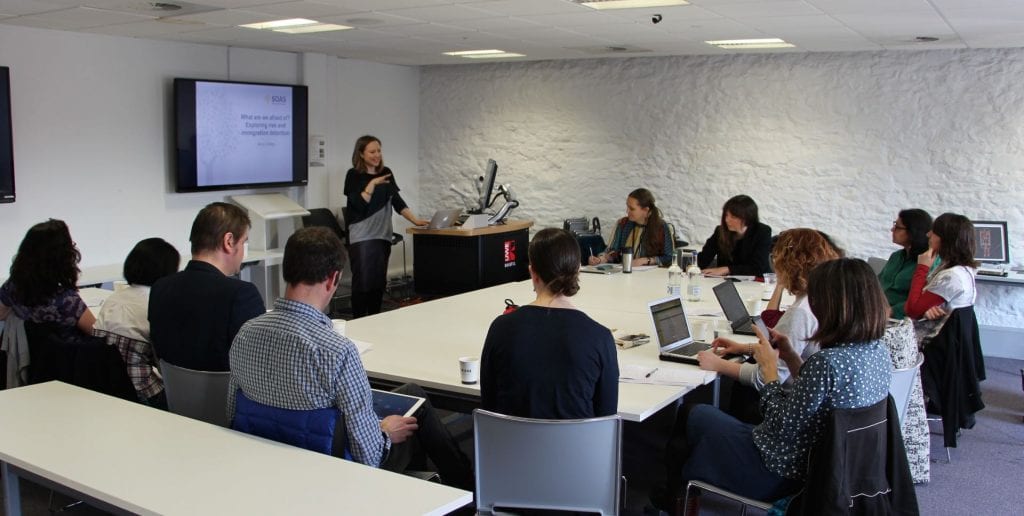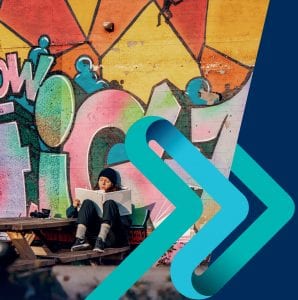By Tom Dixon (ACH Senior Project Officer) and Pier-Luc Dupont from MMB
On 16th April, ACH and Migration Mobilities Bristol (MMB, University of Bristol) hosted the third in the series of joint workshops, this time on the topic of Language. Tom Dixon, Senior Project Officer and Rachel Sharp, Support and Integration Team Leader presented from ACH and Pier-Luc Dupont from MMB. The audience was made of academics from various universities across the South West and Wales.
This workshop was the final in a series of joint workshops aiming to break down barriers between academia and practitioner organisations. ACH has delivered ESOL both via traditional methods and using our own innovative methodologies.
ACH talked about the current model for ESOL provision in the UK and the limitations and issues inherent to it. We also then discussed some of our alternative approaches including English My Way and our SEESI ‘life before language’ methodology.
MMB discussed the problems posed by nationalist approaches to language learning and more specifically by the assumption that the linguistic needs of migrants and refugees are limited to the learning of standard English. As studies on cultural diversity and transnationalism have shown, intra-state linguistic diversity and international mobility mean that plurilingualism and translation services are often necessary for people to participate in economic, political, cultural and social activities. In this context, the challenge is not only to find out how to teach languages effectively but also what languages to teach, to whom, and at what level of proficiency or formality. To answer these questions, language educators must understand why people may want to use certain languages at specific stages of their life course. They must then identify the barriers they face and design interventions to overcome the barriers in the short, medium and long term. In some cases, this may entail the simultaneous teaching of English and other languages or the development of multilingual public and private services. MMB illustrated this with the lived experience of Roma participants in an EU-funded project on justice (ETHOS), which found that linguistic exclusion and stigma were often bound up with racism and other sources of inequality.
After the two short presentations a discussion followed with all participants asking questions of the presenters. These discussions quickly moved from language learning to a broader conversation about learning in general, employment and wider integration. This direction is indicative of the intersectional nature of work undertaken at ACH and MMB and why taking a holistic approach to integration is so essential.
All three workshops have been very useful in sharing expertise with a wider audience and learning from each other.
ACH is always keen to remain informed of relevant academic work which can improve the way in which we support tenants and the wider refugee community in Bristol. If you want to learn more about our projects and approaches, please contact tom.dixon@ach.org.uk.






